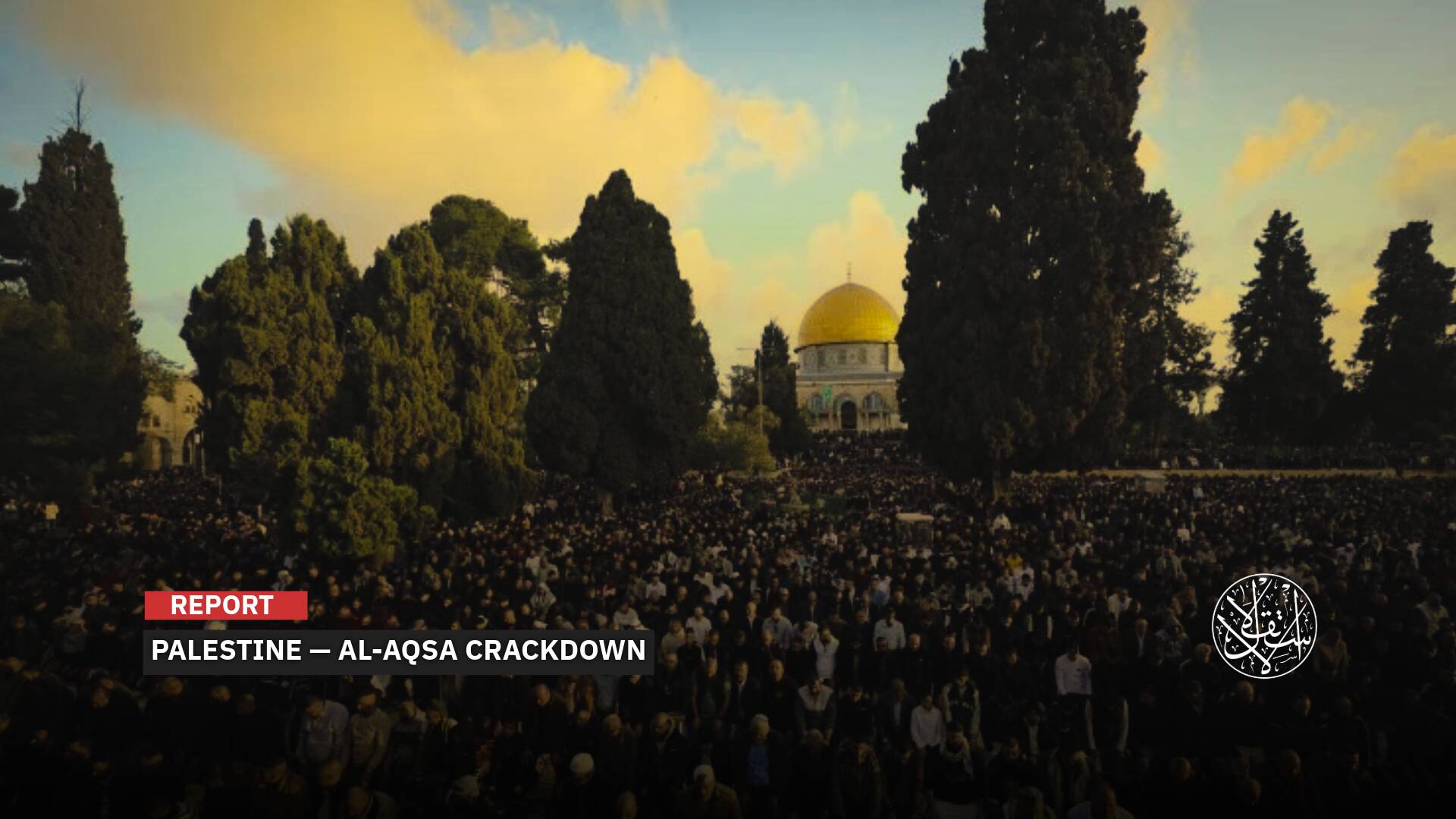Why Trump Designated Anti-Fascist Activism as a Terrorism
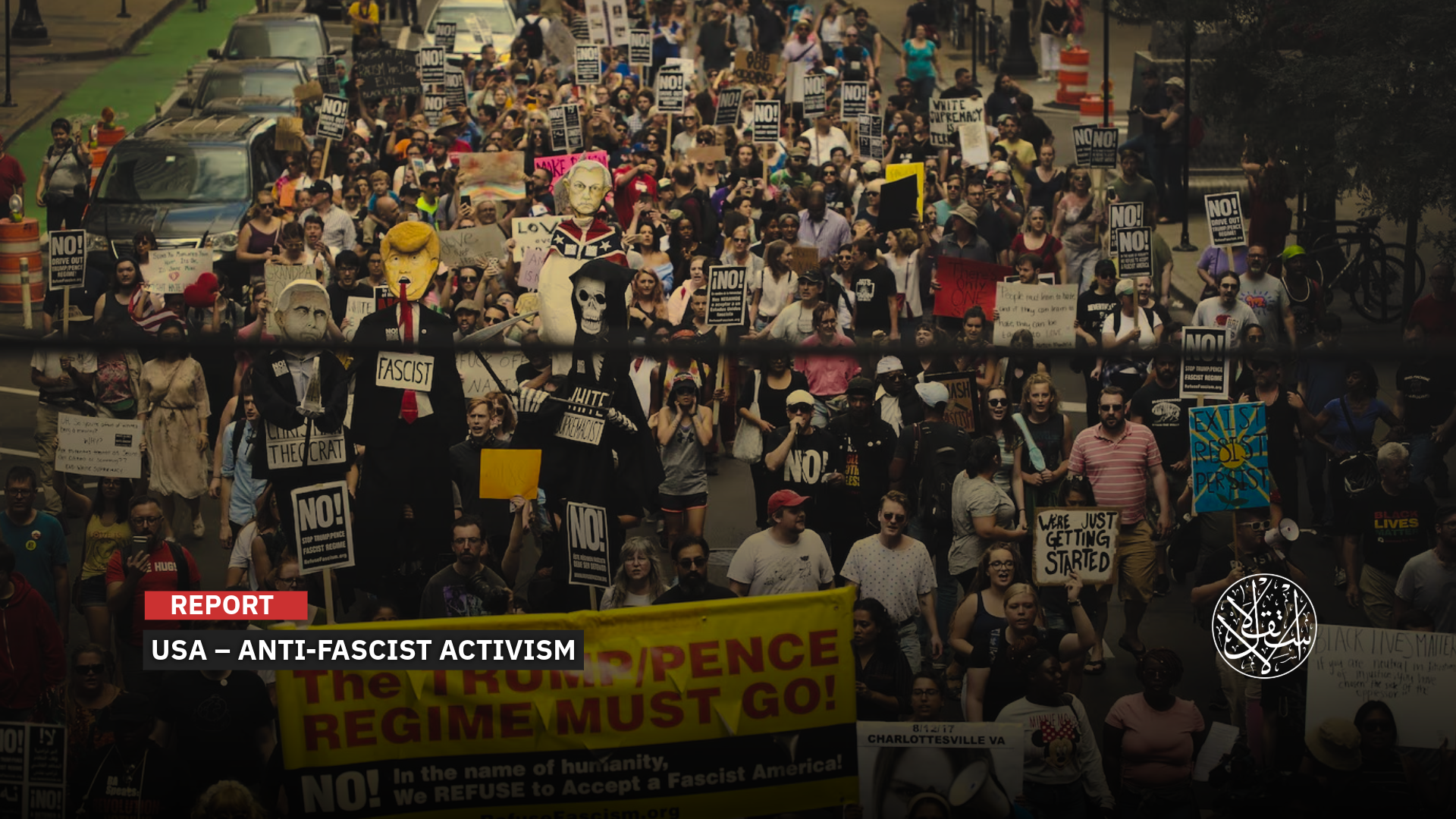
“The Antifa movement is defined by its opposition to far-right neo-Nazi ideologies.”
Last week's assassination of prominent right-wing activist Charlie Kirk reignited a heated national debate about political violence in the U.S.
What could have been an opportunity for a unified call to de-escalate tensions quickly turned into a pretext for unprecedented escalation by the White House against its political opponents, without any clear evidence of a centralized organization behind the violence.
Utah Governor Spencer Cox described the suspect as a left-wing ideologue acting alone, even though investigators have yet to determine the motive for the killing.
But statements by President Donald Trump and his top aides went further, suggesting an organized left-wing network that funds and incites violence against conservatives, with frequent references to ‘Antifa’ and other left-wing groups.
US Attorney Pam Bondi suggested that Indivisible, a progressive activist network, and the Open Society Foundations, founded by George Soros, might be linked to violent extremism.
Anti-Fascists
President Donald Trump used Kirk’s assassination to push again for the controversial move of designating the left-wing anti-fascist movement ‘Antifa’ as a terrorist organization.
He saw the latest incident as an opportunity to blame the left for the death of one of his prominent allies and to settle scores with his political opponents.
“I am pleased to inform our many U.S.A. patriots that I am designating Antifa, a sick, dangerous, radical left disaster, as a major terrorist organization,” President Trump said on the social network Truth.
“I will also be strongly recommending that those funding Antifa be thoroughly investigated in accordance with the highest legal standards and practices,” he added.
Trump recently suggested that he could use the Racketeer Influenced and Corrupt Organizations (RICO) Act, a federal law targeting organized crime, to bring racketeering charges against people who have funded left-wing protest movements.
In turn, Stephen Miller, senior White House political advisor, affirmed that the administration will use all its resources to disrupt this radical left-wing network, in order to make America safe again.
J.D. Vance, the US Vice President, urged senior administration members to praise Kirk and denounce the far-left.
While Vance acknowledged that the Republican Party certainly has some extremists, he blamed most acts of political violence on members of the far-left.
The actions publicly floated by the president and some conservatives include revoking the tax-exempt status of left-leaning non-profits and launching racketeering investigations of organizations that have helped coordinate or fund protests against Trump’s policies.
Party reactions were sharply divided, with some Republicans calling for decisive action against what they described as the far-left, while others warned of the dangers of abusing power.
House Freedom Caucus Chair Rep. Andy Harris and other Republican lawmakers expressed strong support for Trump's decision to label Antifa a terrorist organization.
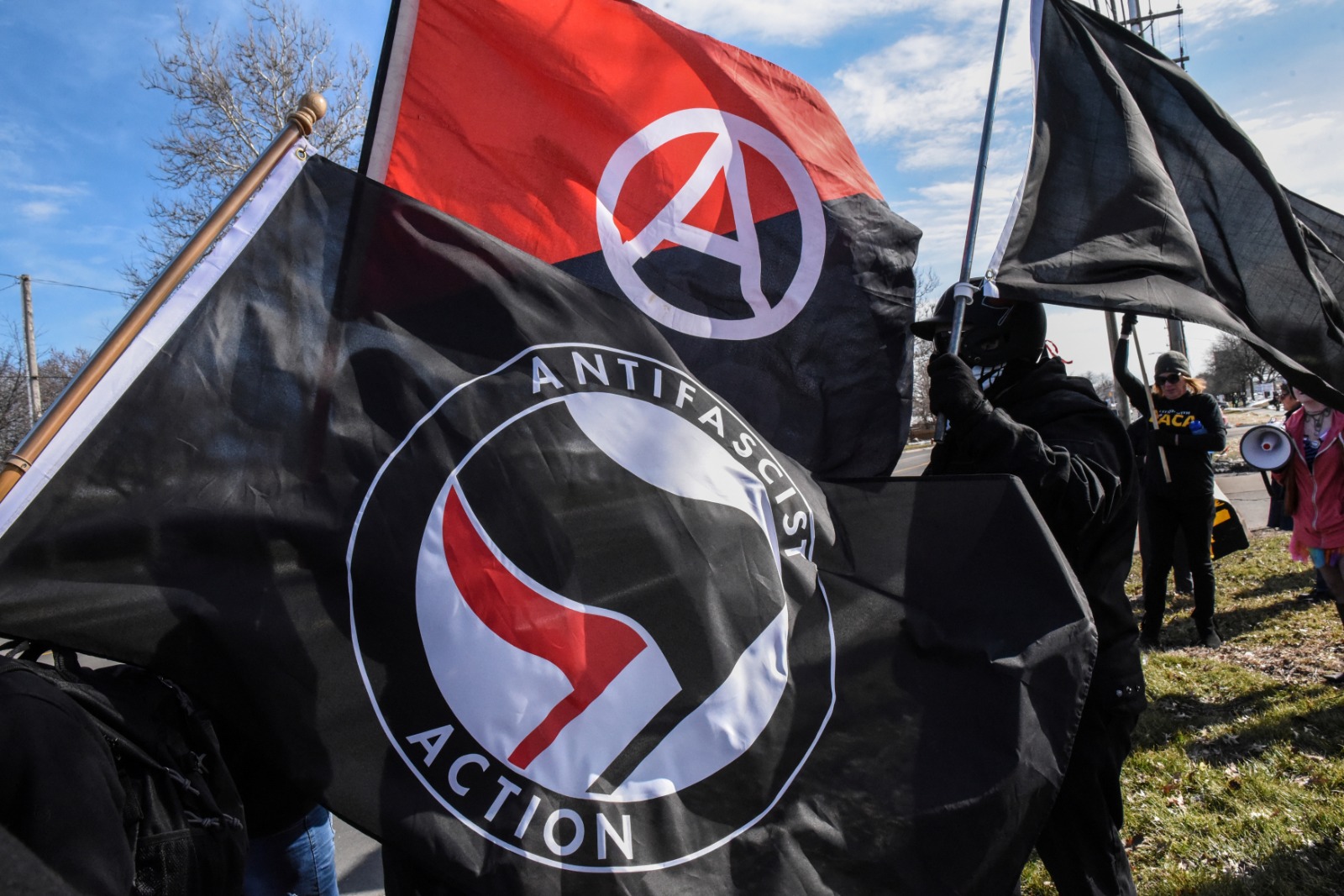
Concerns and Consequences
On the other hand, legal experts raised concerns about the practicality of Trump's designation, noting that Antifa is a movement without a central leadership or formal membership.
Furthermore, the U.S. lacks specific legislation that allows for the designation of domestic groups as terrorist organizations, even though federal law enforcement agencies consider combating domestic terrorism within their purview.
Antifa is a domestic entity and therefore not eligible for inclusion on the State Department's list of foreign terrorist organizations, which includes dozens of groups such as ISIS and al-Qaeda.
However, the significance of such a designation lies in the fact that anyone in the United States who provides support to an organization on that list could face terrorism-related charges, even if that support did not result in any acts of violence.
The U.S. has seen periodic calls, particularly after mass shootings by white supremacists, for domestic anti-terrorism legislation, but to date, no such law has been enacted.
When asked about the legal basis for the president's authority to designate Antifa as a terrorist organization, White House press secretary Kayleigh McEnany cited existing US criminal law that defines acts of domestic and international terrorism.
But defining an act of terrorism is different from designating an entire group as a terrorist organization.
In an open letter, more than 500 civil rights groups condemned what they described as the use of government power to threaten their First Amendment rights.
Democrats have criticized the Trump administration's actions as attempts to suppress political dissent ahead of the 2026 midterm elections.
They warned that such measures could erode democratic freedoms and potentially lead to the misuse of federal power for political gain.
To date, no formal legal action has been taken to officially designate Antifa as a terrorist organization, amid ongoing debates about the consequences of such a move on civil liberties and national security.
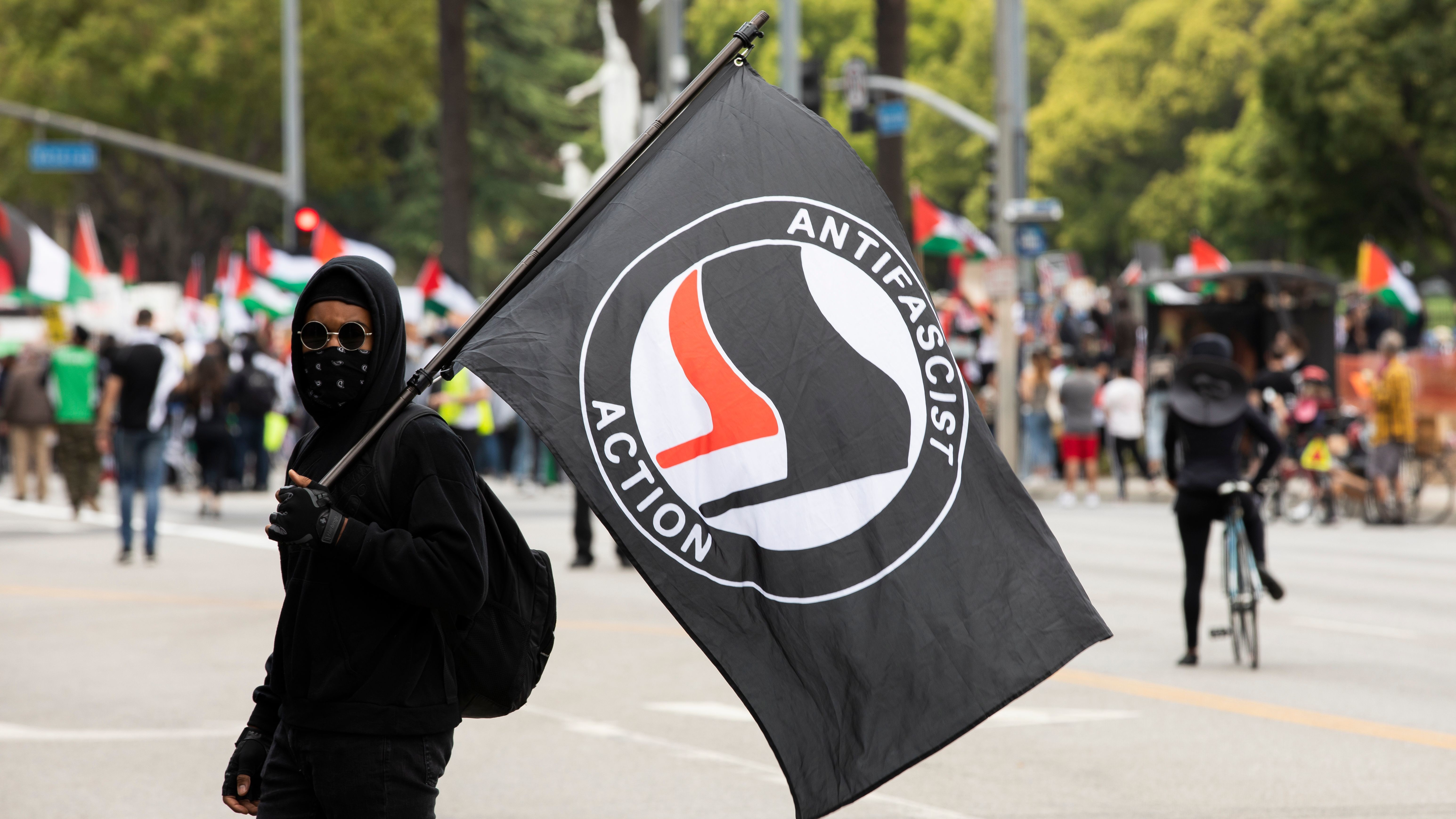
Ideological Movement
Antifa, short for anti-fascists, is a loose network of left-wing activists with no central leadership or clear hierarchy.
Its ideological roots trace back to anti-fascist resistance movements in Nazi Germany and Fascist Italy before World War II.
Merriam-Webster states that the term ‘Antifa’ was first used in 1946 and is derived from a German phrase referring to opposition to Nazism.
The movement is based on the core idea that Adolf Hitler and the Nazis would not have been able to do what they did in Germany had they faced sufficient resistance.
Rose City Antifa, an anti-fascist group, was one of the first groups to use the name in the United States, claiming to have been founded in 2007 in Portland, Oregon.
According to The New York Times, it is impossible to know how many people consider themselves members of Antifa, as its adherents acknowledge that the movement is clandestine, with no official headquarters or leaders.
Its members also sometimes work with other local activist networks that mobilize around similar issues, such as the Occupy Wall Street movement or Black Lives Matter.
Antifa members launch campaigns against actions they consider authoritarian, homophobic, racist, or xenophobic.
They also work to disrupt far-right events, using various tactics, including shouting, chanting, and forming human chains to block far-right protesters.
Their tactics also include monitoring far-right activists on social media and publishing personal information about their opponents online, a practice known as doxing.
Their efforts have led to some far-right supporters being fired from their jobs after their identities were revealed online, according to a BBC report.
It is also not affiliated with the Democratic Party or its leaders. Former President Joe Biden has previously condemned Antifa and violence, no matter who it is.
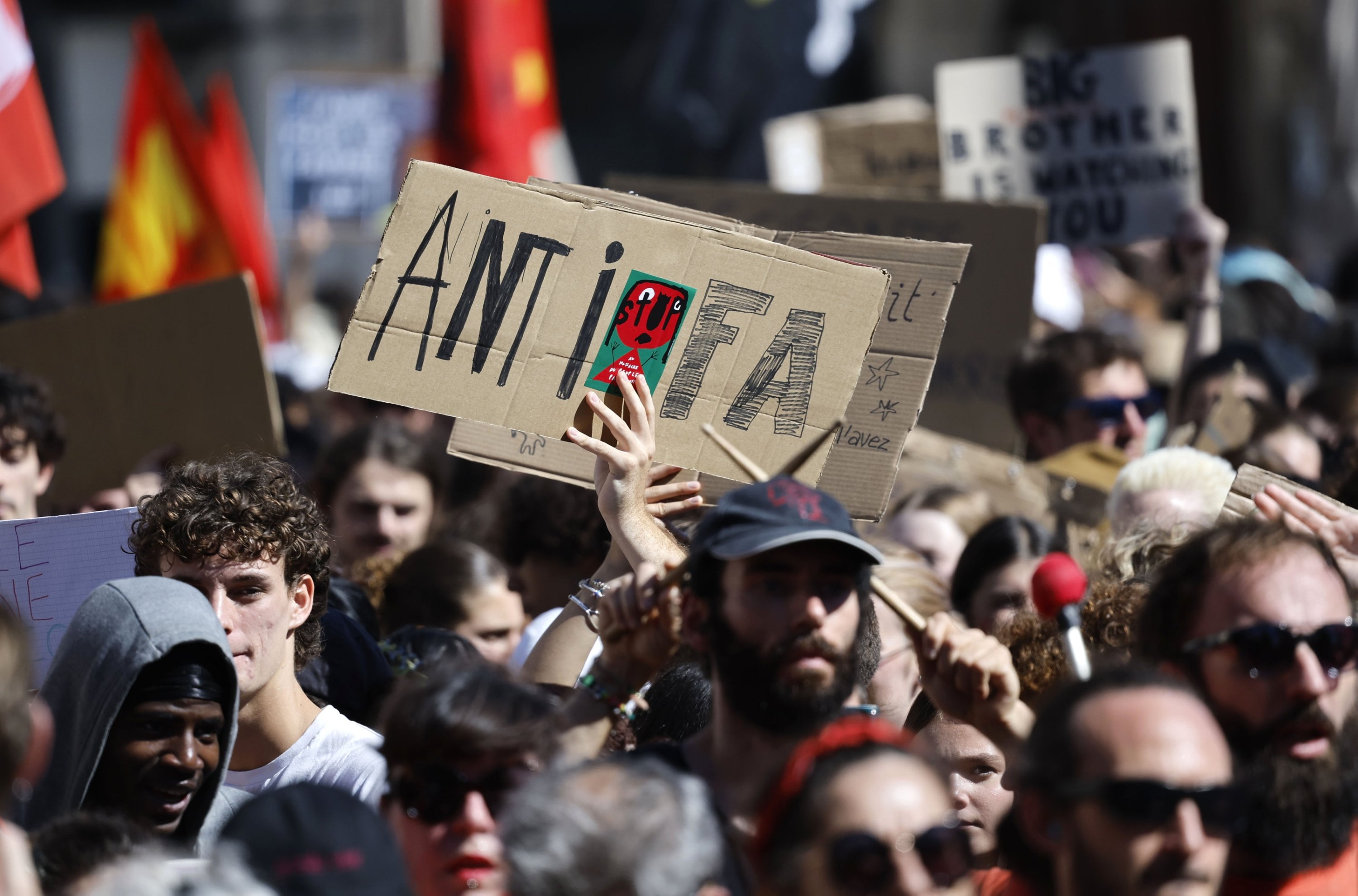
Violent Clashes
Although Europe became familiar with this anti-fascist movement early on, ‘Antifa’ remained largely unknown in the U.S. until 2016, the year that brought Trump to the White House and saw a significant rise in the far-right movement in the country.
Antifa participated in numerous protest events across various states, starting with Trump's inauguration as US president on January 20, 2017.
It led violent protests in the capital, Washington, D.C., which included vandalism, property damage, and arson.
The Antifa movement was associated with several violent confrontations in Charlottesville, Virginia, in 2017, during clashes with white supremacist groups, as well as the disruption of an event featuring a right-wing author at the University of California.
It also gained widespread attention during the Black Lives Matter protests in 2020 following the killing of George Floyd by police in Minneapolis, Minnesota.
Subsequently, it was accused of involvement in acts of violence and looting, although most of the protests were peaceful.
All these incidents contributed to solidifying its image as a controversial movement, seen by some as a bulwark against racism and extremism, and by others seeing it as a source of chaos and violence.
While Antifa's official rhetoric emphasizes non-violence, members of the movement say they consider violence and weapons necessary for self-defense.
The movement also often employs tactics similar to those of anarchist groups, such as wearing all-black clothing and masks.
Throughout his first term, Trump blamed Antifa for many actions he disapproved of, ranging from acts of violence targeting police to the riot by his supporters at the Capitol on January 6, 2021.
In line with Trump's anti-Antifa rhetoric, Republican lawmakers, most notably Senators Ted Cruz and Bill Cassidy, introduced a bill in 2019 that would criminalize the movement and designate it as a domestic terrorist organization.
But experts said at the time that such a move lacked a legal basis, was difficult to implement, and raised concerns about freedom of expression, since belonging to a particular ideology is not generally considered a crime.

However, research has shown that far-right extremists have killed more people than any other political group in the U.S. since the 9/11 attacks.
In 2019, the Anti-Defamation League revealed that far-right extremists were responsible for the overwhelming majority of politically motivated violence in the United States.
The League estimated that in 2018 alone, there were 50 politically motivated murders, all committed by the far right, while the far left was not responsible for any of them.
Despite these figures and facts, efforts continued within the pro-Trump political and media circles to suggest that the far-left and Antifa were responsible for the outbreak of street violence, or at least to try to share the blame between the two groups.
Sources
- What It Means for Trump to Label Antifa a ‘Major Terrorist Organization’
- Trump declares Antifa a domestic terrorist organization
- What Is Antifa, the Movement Trump Wants to Declare a Terror Group?
- Seven things you need to know about Antifa
- Antifa: The Anti-Fascist Handbook [Book]
- Antifa Definition [Dictionary]







